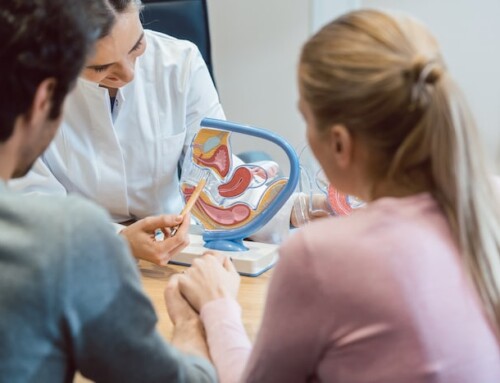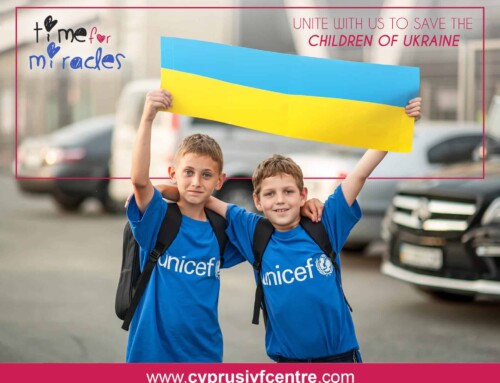Though IVF treatment is a miracle within itself, there are some aspects of it which can be hard for infertile couples to accept. At the Cyprus IVF Centre we are committed to the very highest standards of treatment and sensitive handling of ethical issues, however we do appreciate that there some things which we simply cannot change. One of these is when couples have to accept that in order to achieve the pregnancy they want, they will have to choose donor eggs. We offer a comprehensive and strictly controlled egg donor program, using only the very highest quality eggs, but before now we haven’t been able to confirm the combination of the donor egg with the mother’s DNA.
At the Cyprus IVF Centre women use donor eggs for a variety of reasons. Normally, these are:
- Diminished ovarian reserve
- Premature ovarian failure
- They carry a genetically transmissible disease or abnormality
Whilst using donor eggs can result in the pregnancy they want, the concept that the baby will not share any of its mother’s DNA can be devastating and very hard to come to terms with. This is why the latest studies on the environment in the womb represent a ground-breaking discovery.
What exactly have scientists found ?
Previously, it was thought that the only genetic information within the foetus came from the father and egg donor. Latest research shows that this is not the case, and actually the birth mother can pass on some of her DNA whilst the foetus is in the womb.
How can this happen ?
Put simply, it is down to the womb environment and the proof that it does have an effect on a child. The endometrial fluid carries a variety of molecules, including some known as MicroRNAs. This fluid acts as nourishment to the developing embryo as they absorb it, and the MicroRNAs can then alter the genetic information of the child.
This astonishing discovery was made at Fundacion Instituto Valenciano de Infertilidad in Spain. When researchers measured the activity of the genes within the endometrial fluid, they found that six of the 27 specific maternal MicroRNAs were expressed into the endometrial epithelium during implantation and that they were subsequently released into the endometrial fluid. From here they affect the baby’s development by essentially selecting which genes get used and which don’t. This means that the baby will inherit some of its mother’s DNA.
The exact conditions within the womb are not yet known. It’s possible that the embryo’s environment can affect things like emotional regulation, intelligence, size and sexual orientation. This is a hard concept to research because generally the child is carried by its genetic mother. However it could be that this latest piece of research from Spain could have an unprecedented impact on the way in which we use donor eggs. Team Miracle always stay abreast of the most recent developments and we apply new findings to the way in which we work.
For women using egg donors, this could hail a breakthrough in their treatment. The idea of being genetically distinct from your child is understandably distressing. This is why these studies which appear to show that womb environment does have an impact on a developing foetus are so valuable to infertile couples. The microRNAs have a ‘reprogramming’ effect on not only the embryo, but also the foetus, the child and the adult. Once the embryo has absorbed this genetic material from the birth mother, it is widely believe that the same process continues inside the body.
This discovery is so important because it fundamentally changes the entire concept of donor eggs. When choosing an egg donor, women will no longer be considered as genetically completely separate from their child. Instead, they will have the comforting knowledge that some of their genetic material is being passed on to their child in utero. Whether this strengthens the maternal bond is questionable, but the possibility remains there. Ultimately, the birth mother can be secure in the knowledge that the environment in which her embryo and foetus develop has a significant influence on the child’s genetics, development and health in later life.
At the Cyprus IVF Centre, we are dedicated to receiving and understanding the very latest research from the world of fertility medicine. This means that Team Miracle are always able to offer the most advanced, and highest quality, egg donation program. We are committed to understanding new research from all areas of IVF, as this allows us to offer the highest standards of treatment across the board.






